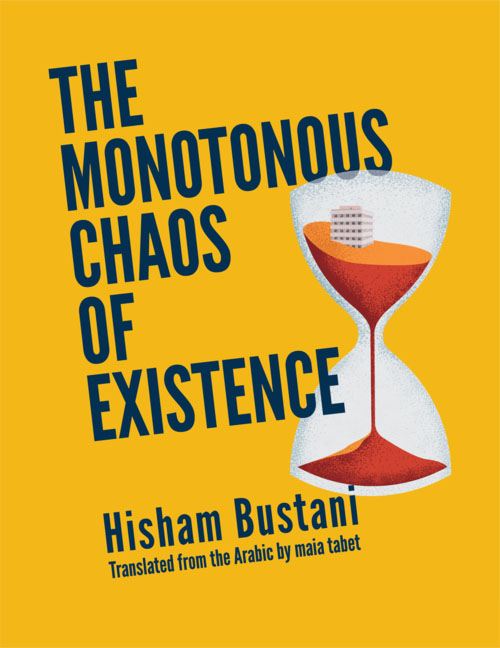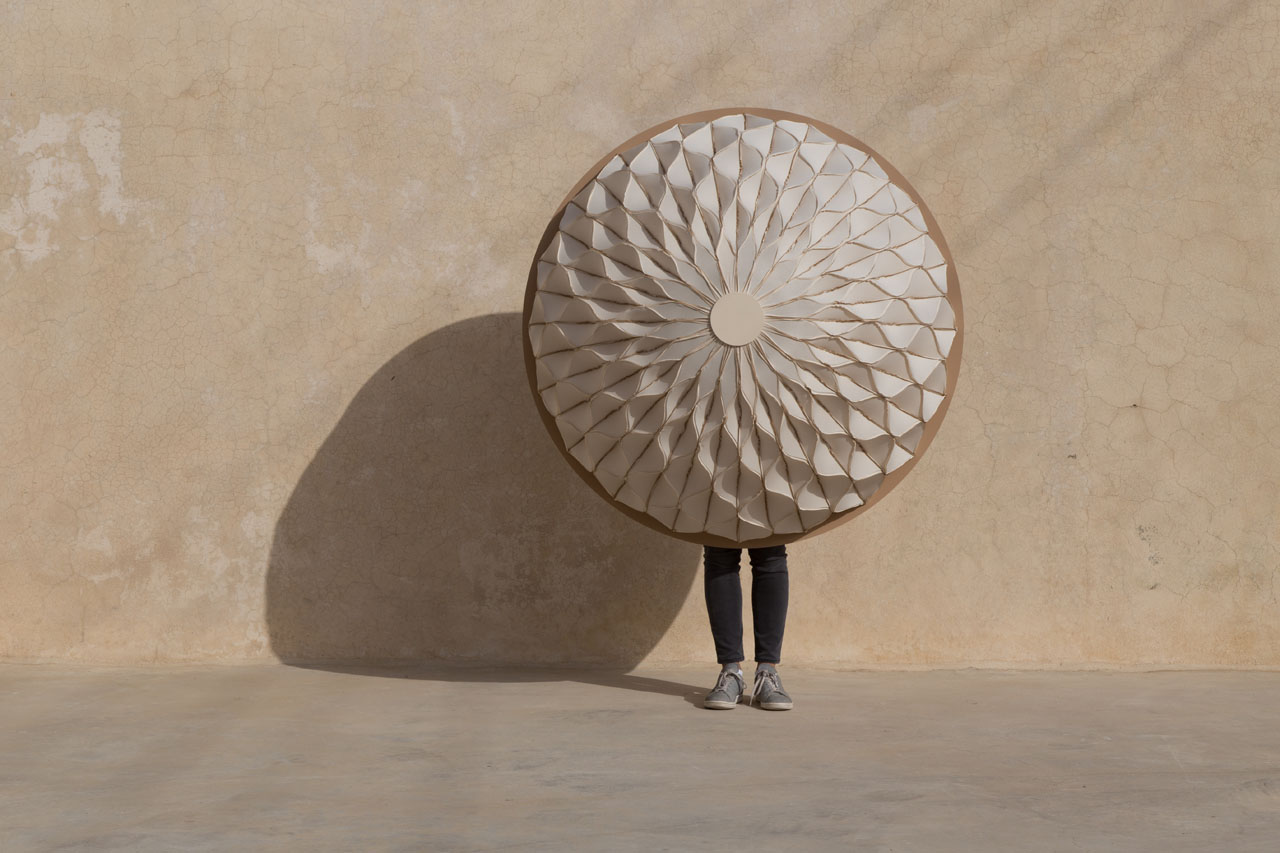This story is excerpted from Hisham Bustani’s The Monotonous Chaos of Existence (Mason Jar Press, 2022), an original and provocative collection of short stories, many set in Jordan. “Intellectuals” appears here by special arrangement with the publisher.
Hisham Bustani
Translated from the Arabic by Maia Tabet
[One]
Angry jabs and tensed forearms filter through the words, his pencil stabs, searing the paper, red flags fluttering between the lines, alongside images of Nasser, Chavez, Hassan Nasrallah, and Che Guevara. People cower under the tables invoking God’s mercy as he heaps Judgment Day curses on the regime, its apologists and loyalists, hands out affidavits of innocence, or guilt, to comrades, and issues his manifesto of nationalism-unity-resistance-internationalism against the backdrop of Kalashnikov fire.
But when he leaves his desk, and steps away from the newspaper financed by a sectarian foundation that pays his salary, he makes his way to the cubicle of a low-level civil servant and petitions for political and financial assistance to the revolutionary forum he heads. At the end of the night, he meets up with old friends, born-again from the past with the touch of Judas Iscariot. “I am the resurrection and the life: he that believeth in me, though he were dead, yet shall he live. Come forth,” he commanded, and despite the voice that had cried from afar — they stink, for they have been dead four decades — they had all risen: the loyalist and the neo-liberal, the right-winger and the fundamentalist, the chauvinist and the opportunist.
Here then were his disciples, their hands and feet bound in linen strips, their faces wrapped in cloth, and after he had loosened their binds and let them go, they set about plotting to overthrow nationalism-internationalism-resistance-revolution, and everything else that was not them.

[Two]
Ever since letting his hair and beard grow out, he had known — without the shadow of a doubt — that he was at least one part artist, and he lived the role fully. He left his family home, rented a dingy room, and filled it with feral cats and cigarette ends. He fasted to the point that he wouldn’t stir up so much as a wisp of air when walking by, and once he was done filling his computer, sketch pad, or fabric (it made no difference which) with his scribbles, he went onto other art forms, notably photography, film directing, and petty conspiracies. “It’s all art,” he would say, “and the artist must experiment, struggle, and experience birth pangs to achieve breakthroughs and transformation.”
And that is how, in the span of seven days, our friend went from left to right to center without a day of rest: he discovered foreign aid and diplomatic support; he explored conformity and non-conformity; he experienced passing pangs of conscience and transient feelings of isolation; he fought one battle after another, and continued laboring since the artist’s travails were, in his view, endless.
His problem was women. He had yet to deflower a single one, but a true artist, as everyone knows, must exert a magnetic attraction for the opposite sex. His authenticity therefore remained in question: the goddesses were angry and the baptismal font stood dry, its waters sequestered in their anger.
It wasn’t long, however, before his (just-as-intellectual) female friends unmasked him and one of them took to baring parts of her tender flesh to him, which he licked and sniffed before setting off, his tail wagging, to bark at whomever lay at the end of the imaginary line extending from her commanding, and desired, finger.
At the end of the day, after reaping his share of sticks and stones and kicks, he would come back to find the door (from which she had sent him off) closed. His head pummeled by the unmistakable sound of amorous voices inside, he’d gather himself and return to the dingy room filled with feral cats and cigarette ends, curl up in a fetal position, and not sleep.
[Three]
When she discovered her intellectual of a husband in her bed, plunged deep between the legs of another woman (also an intellectual), she exclaimed loud enough for everyone to hear that she’d stuff her shoes in his mouth. There was little he could do but jump up stark naked, throw himself at her feet, and snatch one of her shoes. “Here it is, in my mouth! What else? Up my ass, too!” he exclaimed, standing up to open all the windows, still biting down on her footwear.
When the play ended, in which she was the sole protagonist, she really began to believe that there were no other heroines, but after the director got all the accolades, her whole world crumbled. How could a monodrama have two heroines? She ranted and raved until they threw her out — just like the shoes hanging from her husband’s mouth and out of his backside — and the play went on with another actress.
Those two events were more than she could bear, and she sank into a dank and solitary cell, an abyss, of despair.
Since she couldn’t stand anything but herself and she couldn’t bear the solitude — she just had to be with people, if only one other person — she fell apart, went to pieces; and then turned to film directing. Films, after all, were the fiefdoms of absolute despots who received sole attribution. Her name alone would glimmer, with no partner sharing the limelight: “A film by…” In her pre-Copernican vision, where Earth lay at the center of the universe, she, as the center of the world, would become the center of the center. Gyrating at breakneck speed, the center shatters, and the pieces fly in every direction.
Every direction imaginable: so that there was no harm, for instance, in obtaining a visa from the Israeli embassy in Amman and, after the winds of change began to blow, in protesting at its doors, demanding that it be shut down and for its presence to be erased. Nor was it a problem if she protested the U.S. occupation of Iraq and simultaneously used the occupier’s funds to take part in the International Visitor Program to get to know “the enemy’s culture.” And it also wasn’t an issue to defend independent art but get her production costs paid in dollars reaped from the irrigation ditches of the land of the two rivers. Whole as it was, the self was eminently capable of encompassing all things, including contradiction.
Inspired by her husband, the subjugation of men became a driving obsession, in life as well as art. She rode them roughshod after flinging herself at them, and woe betide those who rejected her advances. At them, she directed a stream of invective and obscenities, like garbage hurled from a bucket. She was free to fuck with them but they were not free to refuse her. It was at this point that all the aforementioned contradictions resolved, fusing together with the sharpness of a knife that she threw haphazardly, only to find herself once more swimming in that vast and limitless bucket of filth that had no perimeter, circumference, or rim.
Are you enjoying yourself yet? Yes, you, dear reader. Don’t be incredulous: in a nightmare, she might open the bathroom door while you stand naked under the hot stream of the shower. She might insinuate her fingers into your fly while you’re driving. She might throw herself at you, legs wide open, and panting with the excitement of a woman who’s gone too long without being laid. But when she does, and then quenches her thirst (or not), she will feel that shoe obstructing her breathing, and her tawdriness worming its way into her, devouring her flesh bit by bit. There must have been a criminal, some scumbag who had driven or forced her, exploited her feelings, and trifled with her innocence. And that scumbag is you: yes, you, who are reading this and enjoying the vision of her imagined flesh. Yes, you, motherfucker.
No, we’re not done yet, there’s still a ways to go until she reaches her solipsistic climax. Once the desired men who don’t reciprocate her feelings penetrate her in her dream, she snaps their cocks between her thighs, thrusts into herself head first and coils herself up tightly to become the center of the vortex, spinning faster and faster, its pieces flying in every direction as it breaks up and disintegrates.
[In the kitchen of the Almighty Leader]
The well-trained servant comes in every day and opens the fridge, taking a specimen from [One], another from [Two], and a third from [Three]. He drops them into the blender, runs the machine at maximum speed, and pours the thick liquid into a tall glass for the Almighty Leader to drink first thing in the morning — in accordance with the palace physician’s instructions — in order to enjoy life everlasting.




